In analytic philosophy, anti-realism is an epistemological position first articulated by British philosopher Michael Dummett which encompasses many varieties such as metaphysical, mathematical, semantic, scientific, moral and epistemic. The term was coined as an argument against a form of realism Dummett saw as 'colorless reductionism'.
The philosophy of mathematics is the branch of philosophy that studies the assumptions, foundations, and implications of mathematics. It aims to understand the nature and methods of mathematics, and find out the place of mathematics in people's lives. The logical and structural nature of mathematics itself makes this study both broad and unique among its philosophical counterparts.
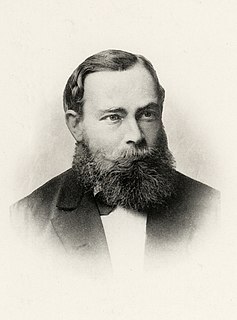
Friedrich Ludwig Gottlob Frege was a German philosopher, logician, and mathematician. He worked as a mathematics professor at the University of Jena, and is understood by many to be the father of analytic philosophy, concentrating on the philosophy of language, logic, and mathematics. Though he was largely ignored during his lifetime, Giuseppe Peano (1858–1932), Bertrand Russell (1872–1970), and, to some extent, Ludwig Wittgenstein (1889–1951) introduced his work to later generations of philosophers.
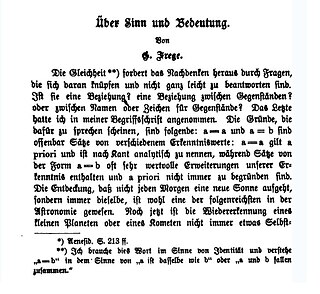
In the philosophy of language, the distinction between sense and reference was an innovation of the German philosopher and mathematician Gottlob Frege in 1892, reflecting the two ways he believed a singular term may have meaning.
In the philosophy of language, the distinction between concept and object is attributable to the German philosopher Gottlob Frege in 1892.
Crispin James Garth Wright is a British philosopher, who has written on neo-Fregean (neo-logicist) philosophy of mathematics, Wittgenstein's later philosophy, and on issues related to truth, realism, cognitivism, skepticism, knowledge, and objectivity. He is Professor of Philosophy at New York University and Professor of Philosophical Research at the University of Stirling, and taught previously at the University of St Andrews, University of Aberdeen, Princeton University and University of Michigan. TheBestSchools.org has included Crispin Wright within the 50 most influential living philosophers.
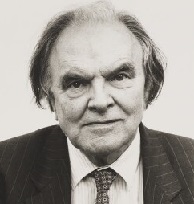
Peter Thomas Geach (1916–2013) was an English philosopher and professor of logic at the University of Leeds. His areas of interest were philosophical logic, ethics, history of philosophy, philosophy of religion and the theory of identity.
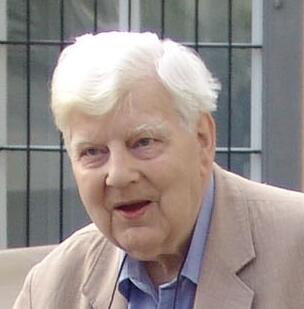
Sir Michael Anthony Eardley Dummett (1925–2011) was an English academic described as "among the most significant British philosophers of the last century and a leading campaigner for racial tolerance and equality." He was, until 1992, Wykeham Professor of Logic at the University of Oxford. He wrote on the history of analytic philosophy, notably as an interpreter of Frege, and made original contributions particularly in the philosophies of mathematics, logic, language and metaphysics. He was known for his work on truth and meaning and their implications to debates between realism and anti-realism, a term he helped to popularize. He devised the Quota Borda system of proportional voting, based on the Borda count. In mathematical logic, he developed an intermediate logic, already studied by Kurt Gödel: the Gödel–Dummett logic.
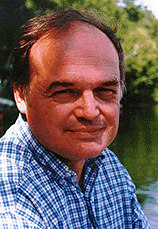
George Stephen Boolos was an American philosopher and a mathematical logician who taught at the Massachusetts Institute of Technology.
Hans D. Sluga is a German academic. Since 1970, Sluga has been a professor of philosophy at the University of California, Berkeley, and since 2009 he has been the William and Trudy Ausfahl Professor of Philosophy there. He previously served as a lecturer in philosophy at University College London. He teaches and writes on topics in analytic philosophy as well as on political philosophy and has been particularly influenced by the thought of Gottlob Frege, Ludwig Wittgenstein, Martin Heidegger, Friedrich Nietzsche, and Michel Foucault.

The linguistic turn was a major development in Western philosophy during the early 20th century, the most important characteristic of which is the focusing of philosophy and the other humanities primarily on the relations between language, language users, and the world.
Carlo Penco is an Italian analytic philosopher and full professor in philosophy of language at the University of Genoa in Italy.
Gordon Park Baker was an American-English philosopher. His topics of interest included Ludwig Wittgenstein, Gottlob Frege, Friedrich Waismann, Bertrand Russell, the Vienna Circle, and René Descartes. He was noted for his collaboration with Peter Hacker and his disagreements with Michael Dummett.
David Andrew Bell is a British philosopher. He is emeritus professor of philosophy at the University of Sheffield, He studied in Dublin, Göttingen and Canada, and is best known for his work on the philosophers Gottlob Frege, Immanuel Kant, and Edmund Husserl, and also on topics such as solipsism, phenomenology, the theory of thought and judgement, and the history of the Analytic Tradition.
In the philosophy of mathematics, formalism is the view that holds that statements of mathematics and logic can be considered to be statements about the consequences of the manipulation of strings using established manipulation rules. A central idea of formalism "is that mathematics is not a body of propositions representing an abstract sector of reality, but is much more akin to a game, bringing with it no more commitment to an ontology of objects or properties than ludo or chess." According to formalism, the truths expressed in logic and mathematics are not about numbers, sets, or triangles or any other coextensive subject matter — in fact, they aren't "about" anything at all. Rather, mathematical statements are syntactic forms whose shapes and locations have no meaning unless they are given an interpretation. In contrast to logicism or intuitionism, formalism's contours are less defined due to broad approaches that can be categorized as formalist.
This is a list of articles in analytic philosophy.
Ian Rumfitt is a British philosopher currently serving as a senior research fellow of All Souls College, Oxford.
Brian McGuinness was a British philosopher.

Frege: Philosophy of Language is a book about the philosopher Gottlob Frege by the British philosopher Michael Dummett.

Eva Picardi was an Italian philosopher.








